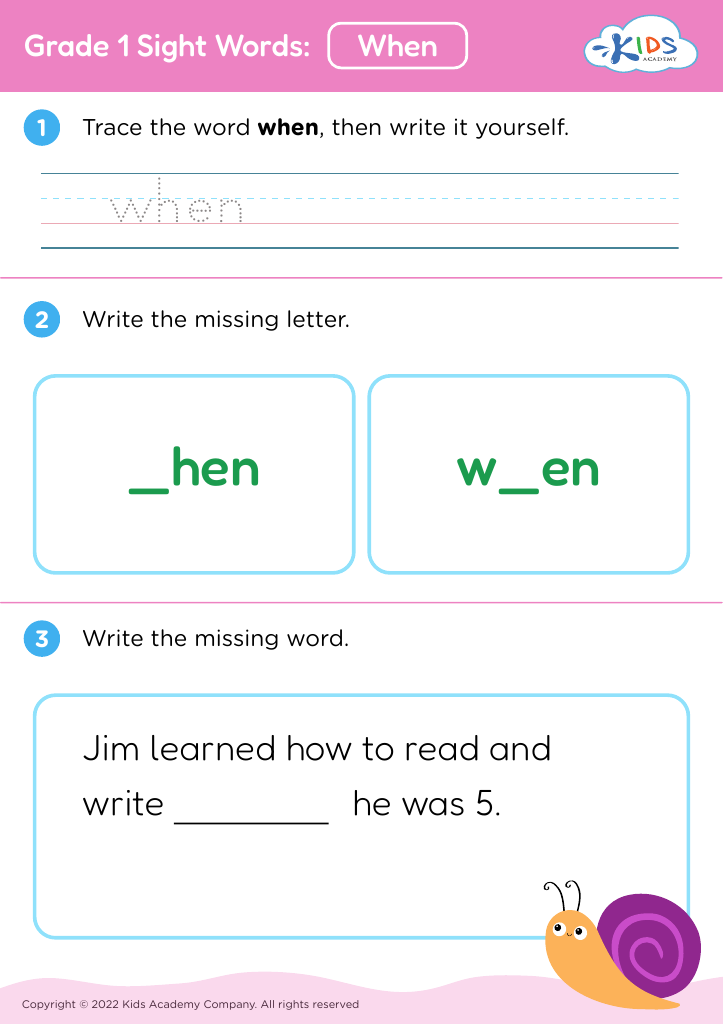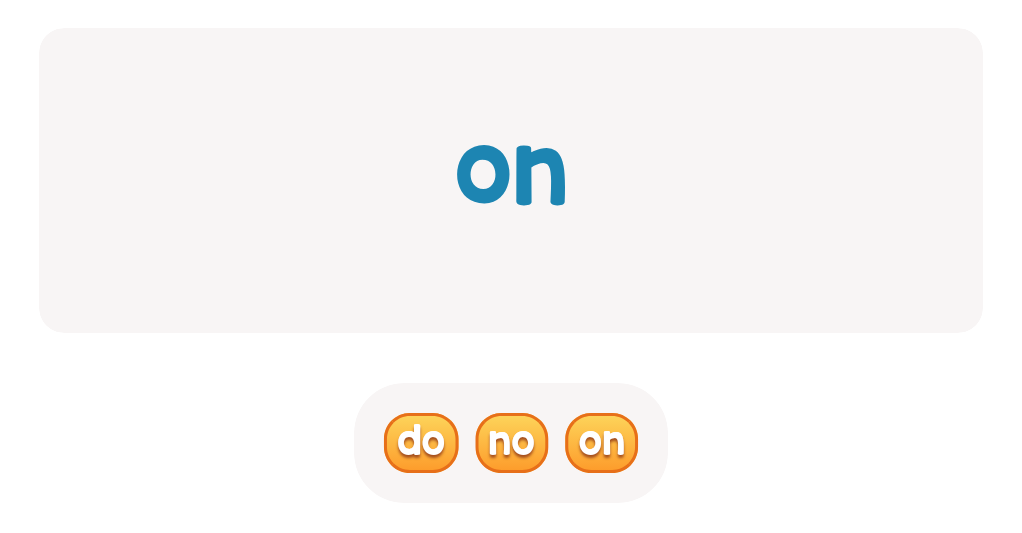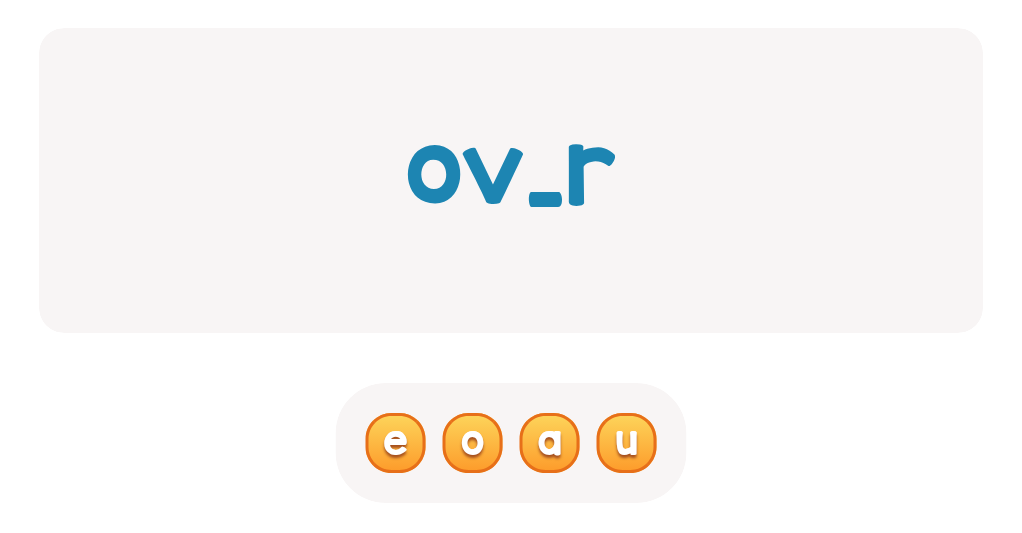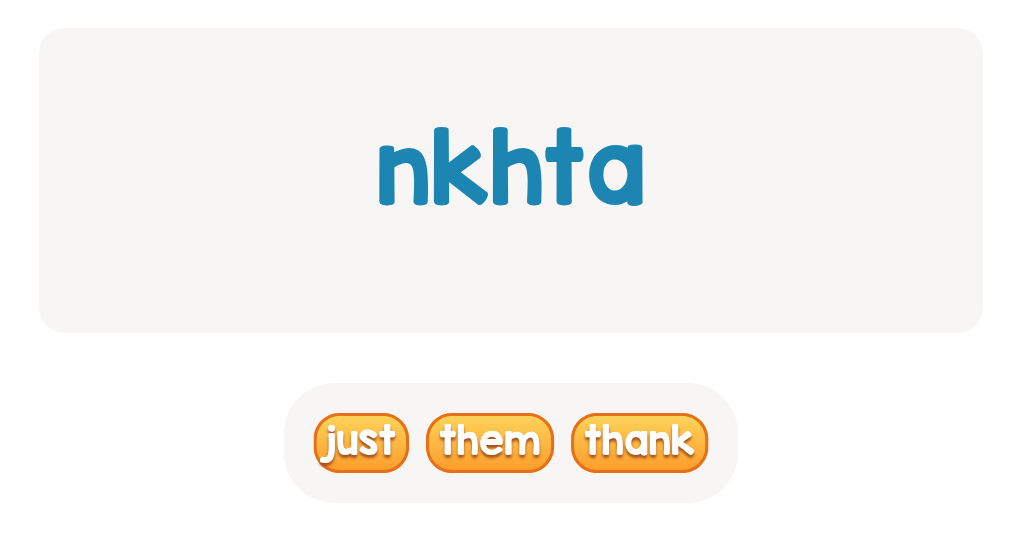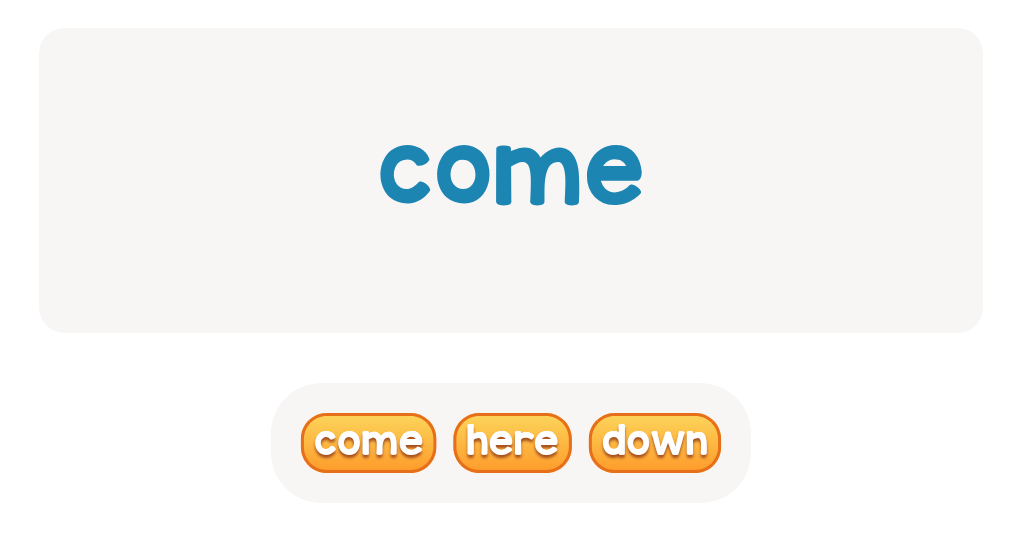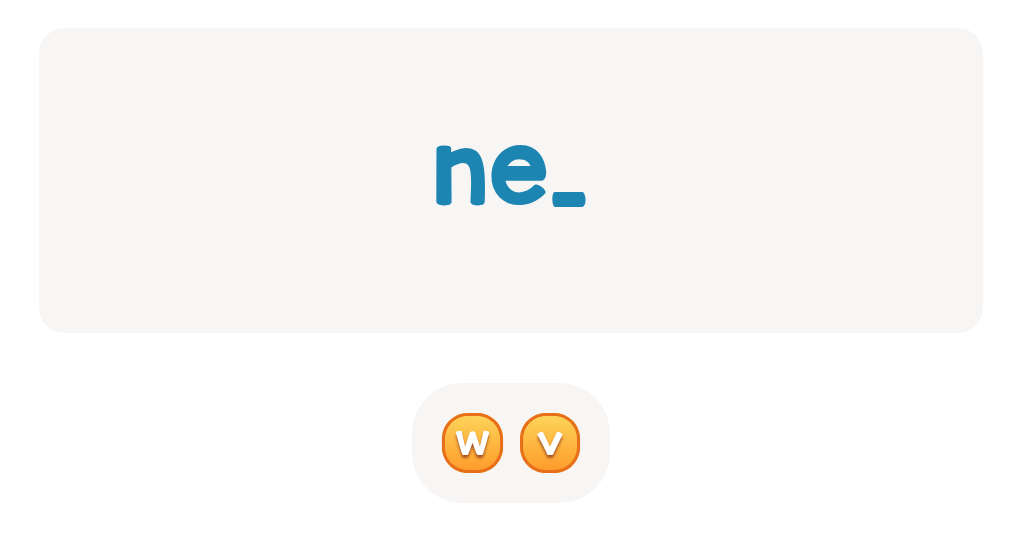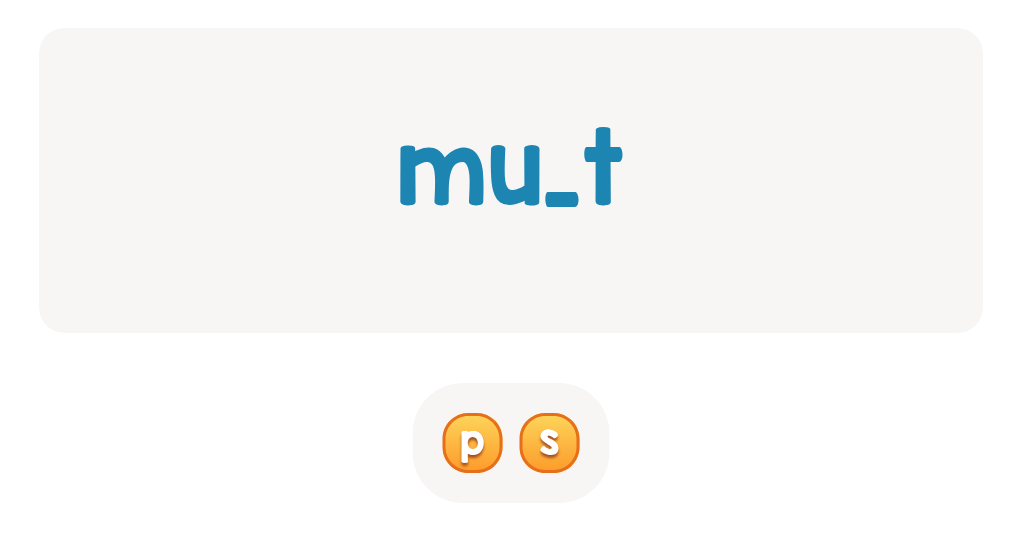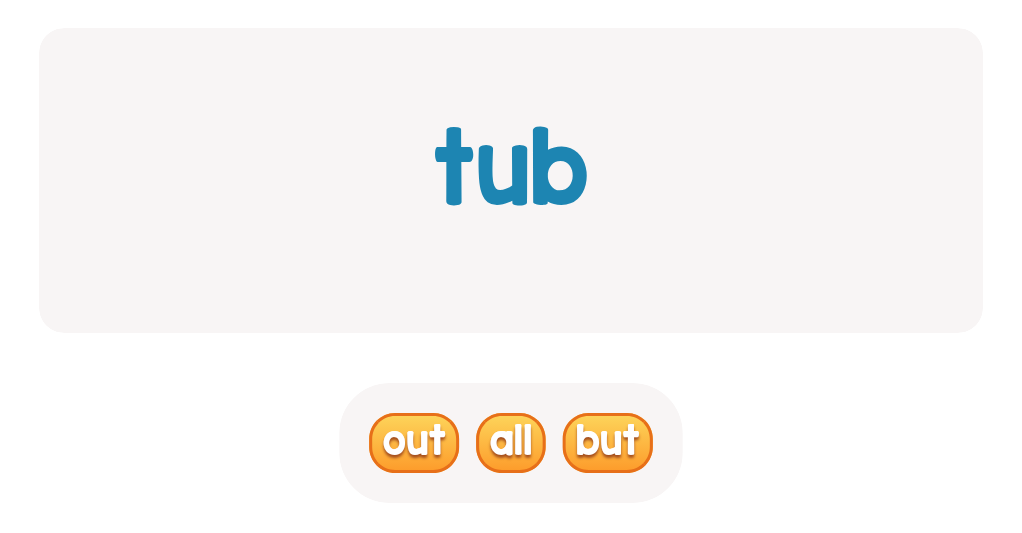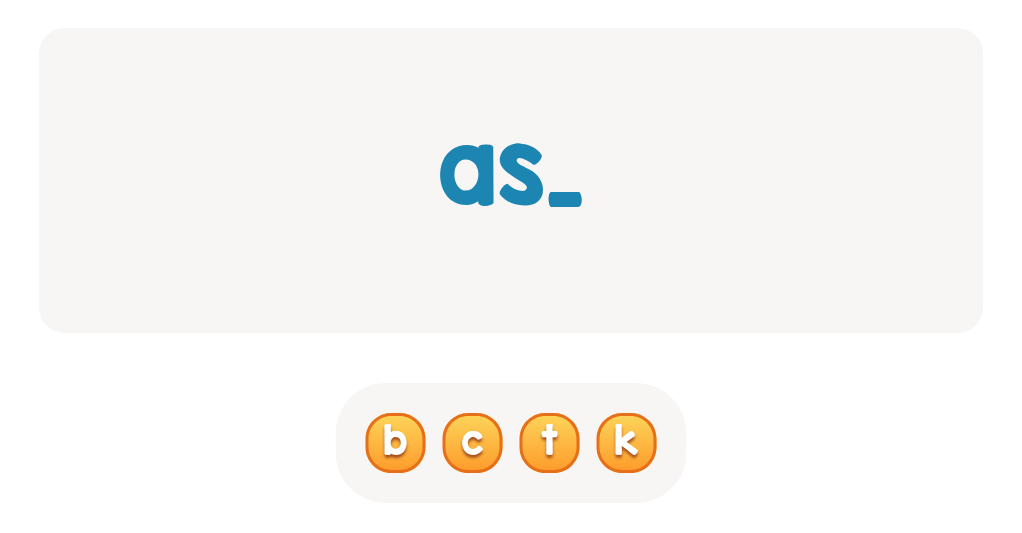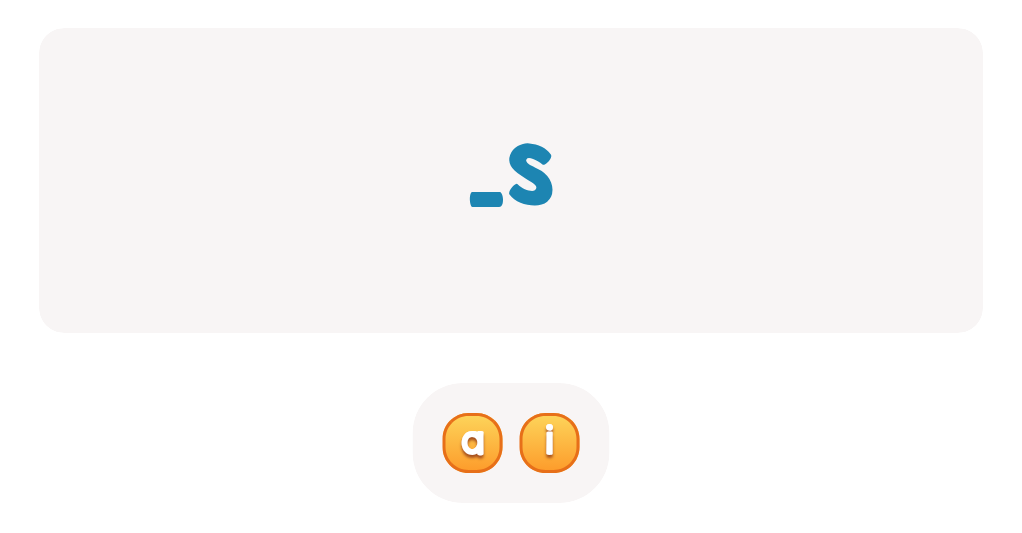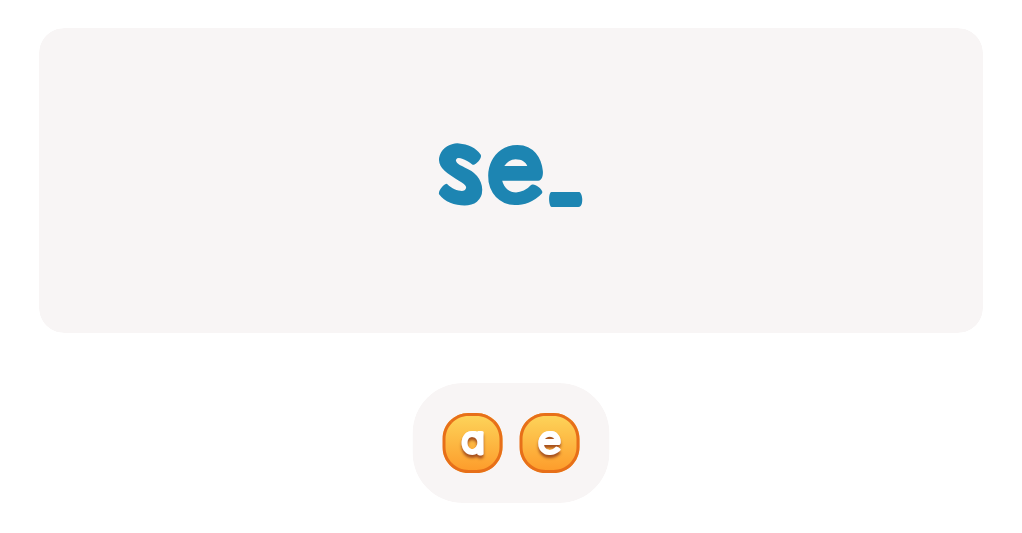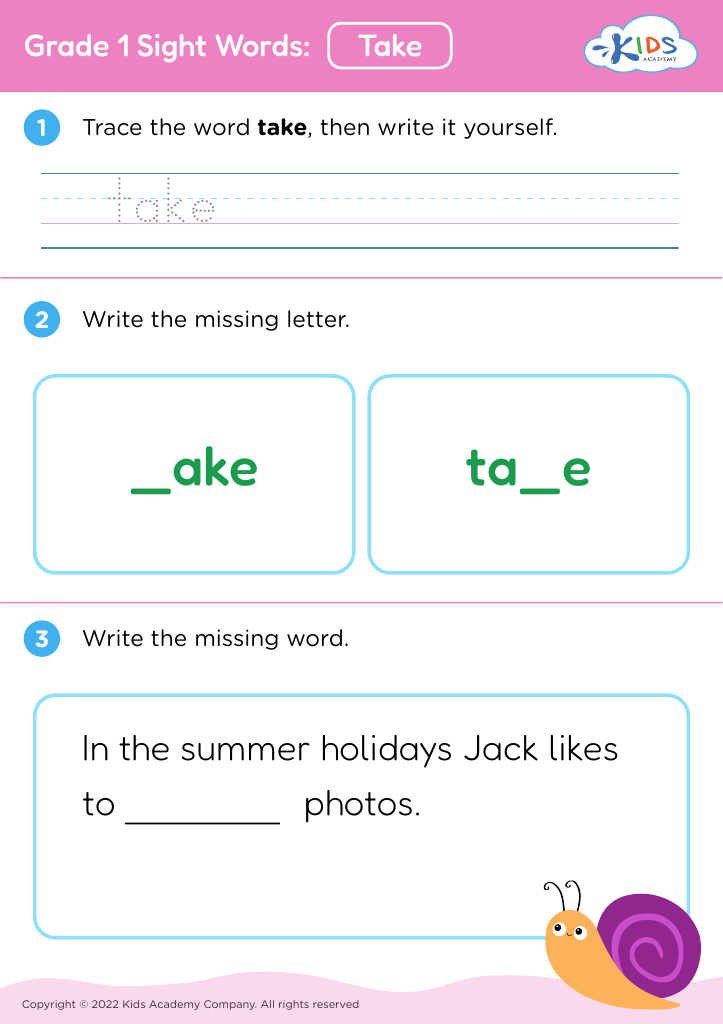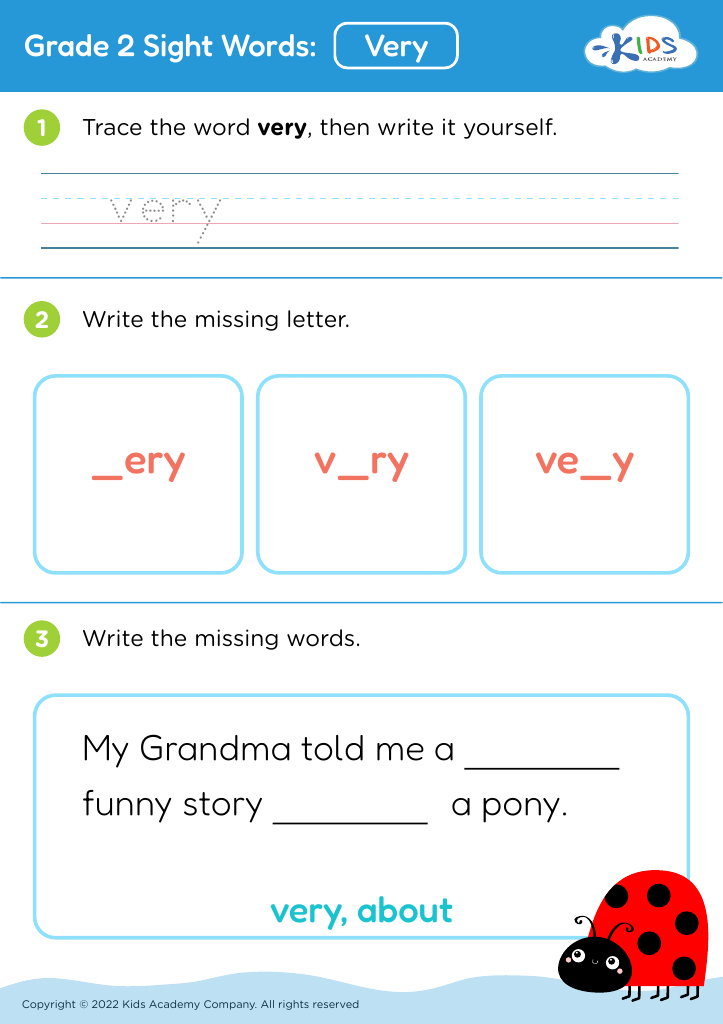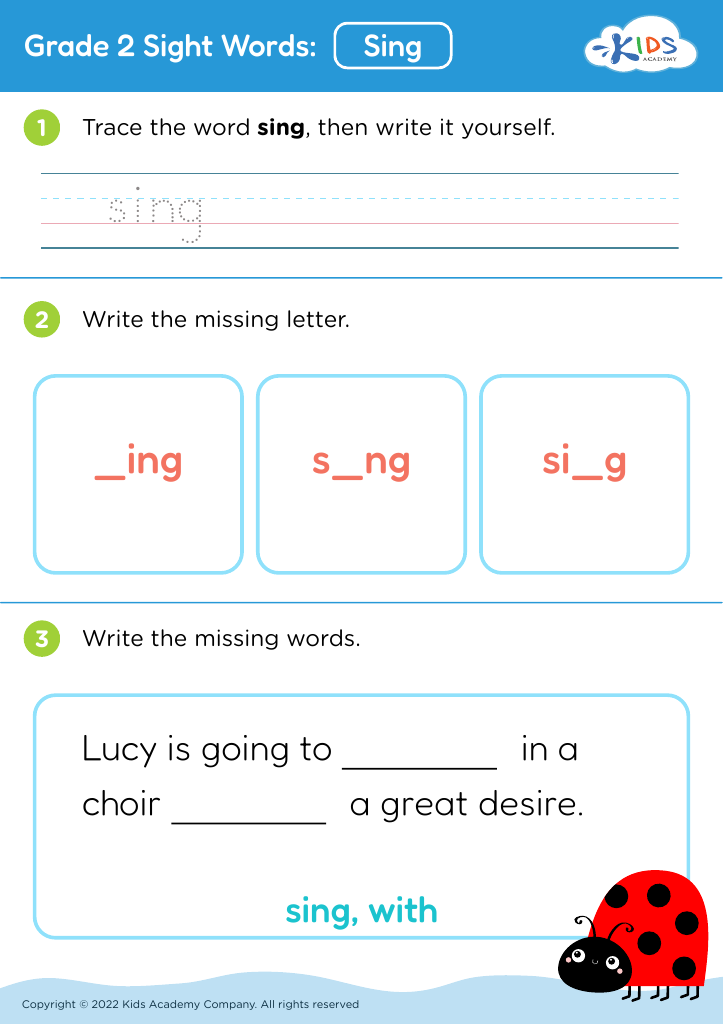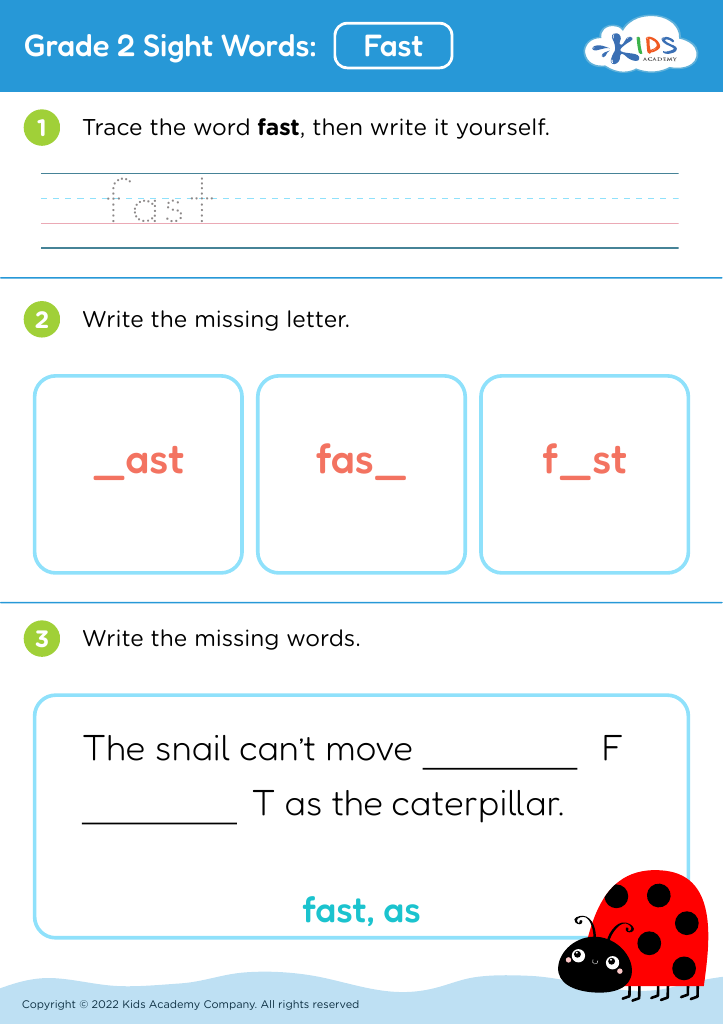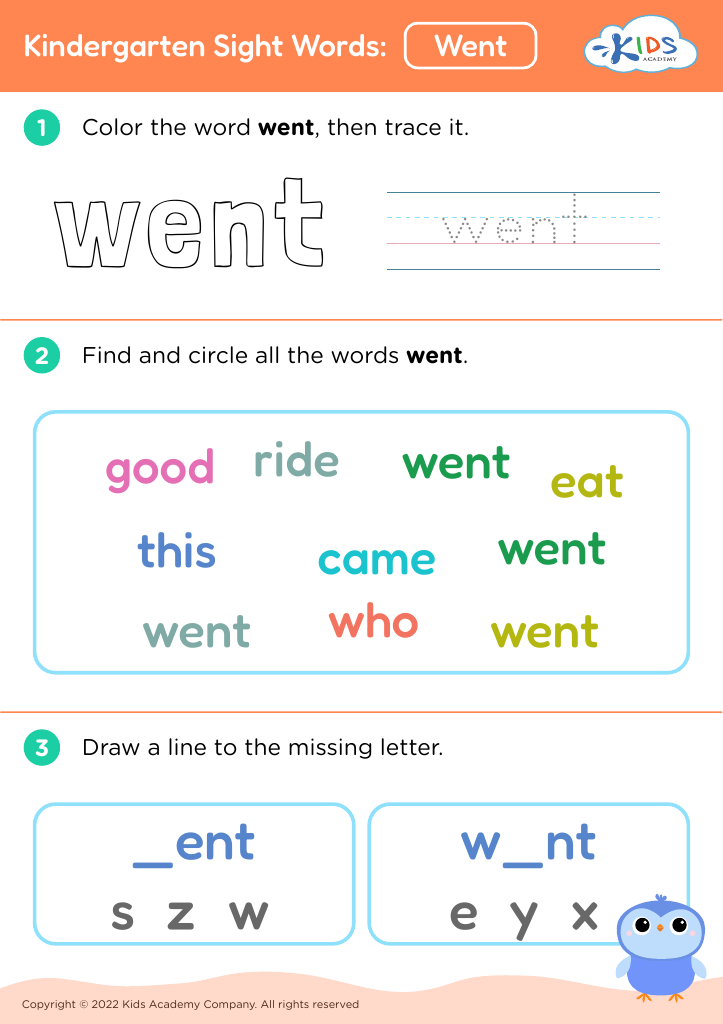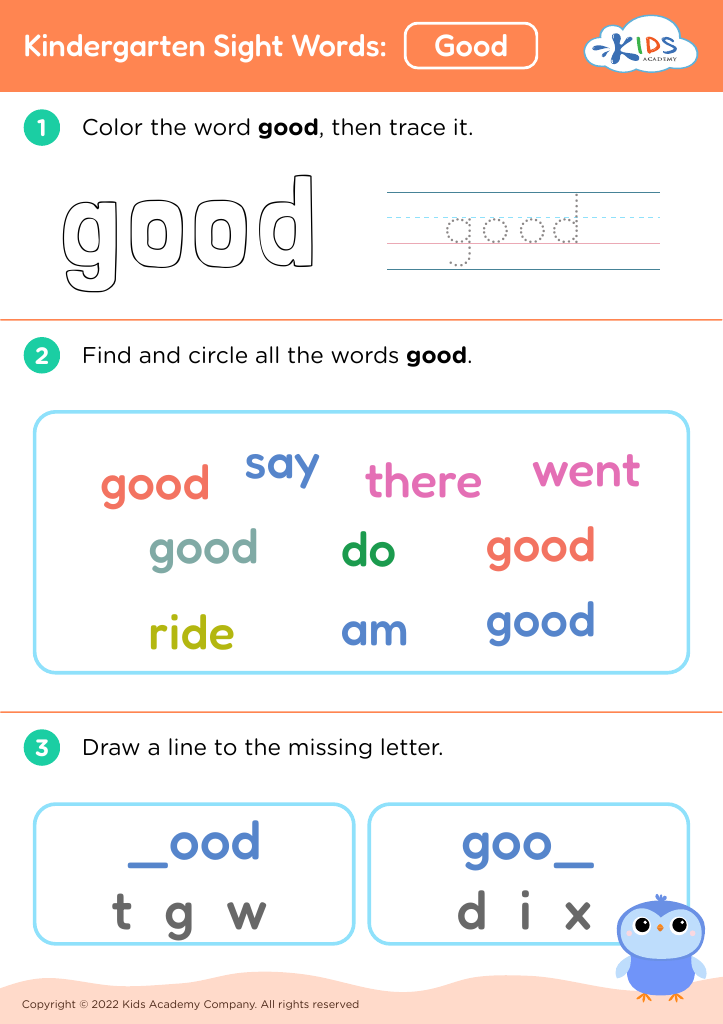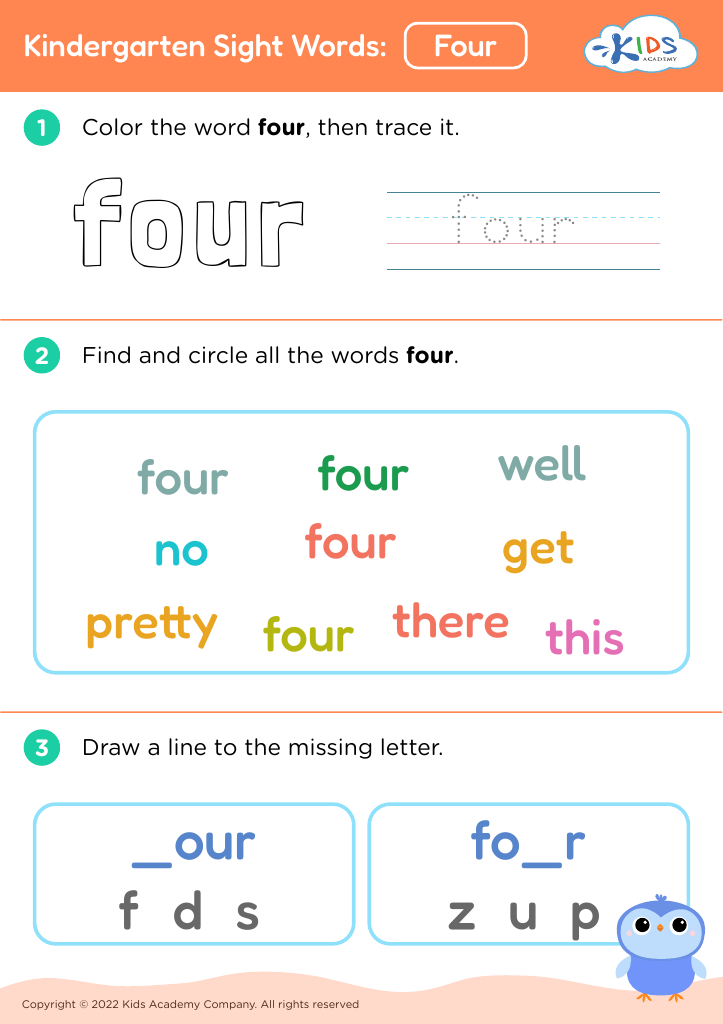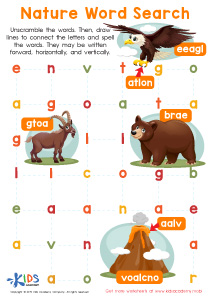Addition Practice Sight Words Worksheets for Ages 5-7
8 filtered results
-
From - To
Enhance your child's reading and math skills with our "Addition Practice Sight Words Worksheets" designed for ages 5-7! These engaging worksheets combine essential sight word recognition with fun addition exercises, perfect for budding learners. By seamlessly integrating math practice with sight word learning, children will improve their reading fluency and computational skills simultaneously. Our resources are colorful, easy to understand, and tailored to maintain young learners' interests. Promote confidence in both reading and math while providing a solid foundation for future educational success. Explore our fun-filled worksheets today and support your child's learning journey!
Parents and teachers should prioritize Addition Practice Sight Words for children ages 5-7 because these foundational skills directly contribute to early literacy and numeracy development. Sight words, which are critical for reading fluency, help young learners recognize common words quickly without decoding, fostering reading confidence and enjoyment. When children master these words, they can focus on comprehension rather than getting bogged down by unfamiliar vocabulary.
Simultaneously, introducing addition practice aids in developing essential mathematical skills. At this age, children are beginning to understand numbers and basic operations, laying the groundwork for more complex math later on. Engaging students with interactive games, worksheets, or verbal practices makes learning fun and helps reinforce these concepts.
Moreover, incorporating both literacy and numeracy into daily routines enhances cognitive flexibility, encouraging children to make connections between reading and math. This holistic approach prepares them for diverse learning experiences and equips them with problem-solving skills. By dedicating time to this combination of skills, parents and teachers empower young learners not only to succeed academically but also to develop a lifelong love for learning, ultimately setting them up for success in school and beyond.
